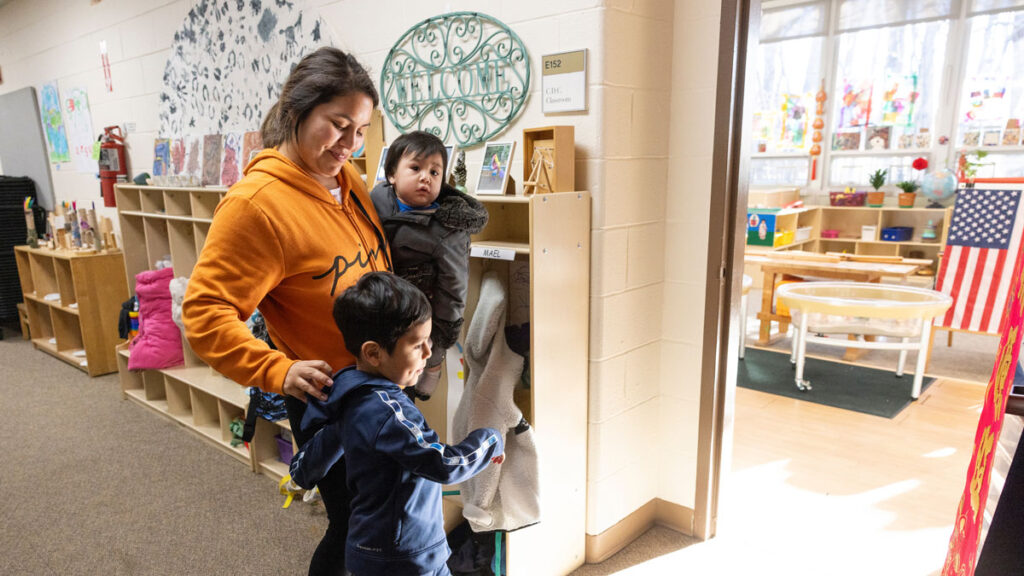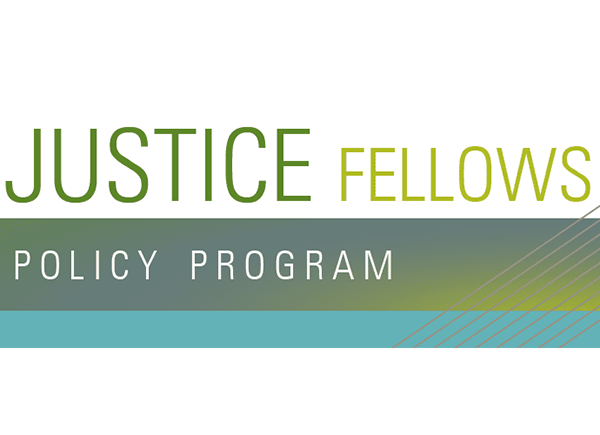Over the past two years, EdTrust’s advocacy at the Texas Capitol has helped shape the future of higher education in prison (HEP) — the journey has been anything but linear. What began as a push to codify postsecondary education inside Texas prisons has grown into a statewide effort to center quality, access, and accountability in an emerging policy landscape.
This work was led by Alexa Garza, a formerly incarcerated woman who earned her degree while in prison and stepped into the Capitol for the first time during the 88th Texas Legislative Session in 2023. As a member of EdTrust’s inaugural Justice Fellows Policy Program, where she learned to navigate policy work, Alexa applied that foundation to her advocacy in Austin. At that time, the recent reinstatement of federal Pell Grant eligibility for incarcerated students created an opening for state advocates and leaders to revisit the landscape of programs and policies shaping HEP.
The 88th Session: Building Legislative Awareness
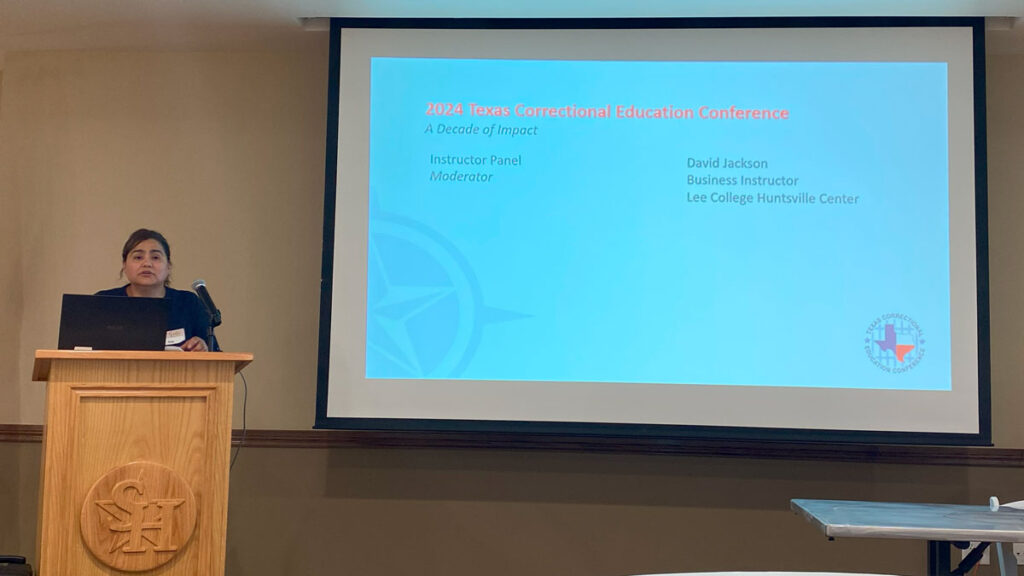 As a policy analyst with EdTrust in Texas, Alexa worked with a small group of partners, including Texas Appleseed, a nonprofit organization dedicated to fostering safe and supportive school environments and dismantling the school-to-prison pipeline. Together, they aimed to shape and advance House Bill 4251, which sought to establish clear guidelines, standards, and data-sharing requirements for HEP programs across Texas. While HB 4251 was significantly revised and ultimately did not pass in the 2023 session, its introduction and progress raised broader awareness of the issue and provided a crucial opportunity to educate key legislators, including committee members who were previously unfamiliar with federal changes and the lack of statutory oversight governing HEP in Texas. Furthermore, the experience was invaluable to Alexa’s personal development as she navigated the legislative process for the first time. She learned how to communicate with staffers, craft a narrative rooted in her lived experiences, and recognize that relationships, timing, and persistence are essential for effective advocacy.
As a policy analyst with EdTrust in Texas, Alexa worked with a small group of partners, including Texas Appleseed, a nonprofit organization dedicated to fostering safe and supportive school environments and dismantling the school-to-prison pipeline. Together, they aimed to shape and advance House Bill 4251, which sought to establish clear guidelines, standards, and data-sharing requirements for HEP programs across Texas. While HB 4251 was significantly revised and ultimately did not pass in the 2023 session, its introduction and progress raised broader awareness of the issue and provided a crucial opportunity to educate key legislators, including committee members who were previously unfamiliar with federal changes and the lack of statutory oversight governing HEP in Texas. Furthermore, the experience was invaluable to Alexa’s personal development as she navigated the legislative process for the first time. She learned how to communicate with staffers, craft a narrative rooted in her lived experiences, and recognize that relationships, timing, and persistence are essential for effective advocacy.




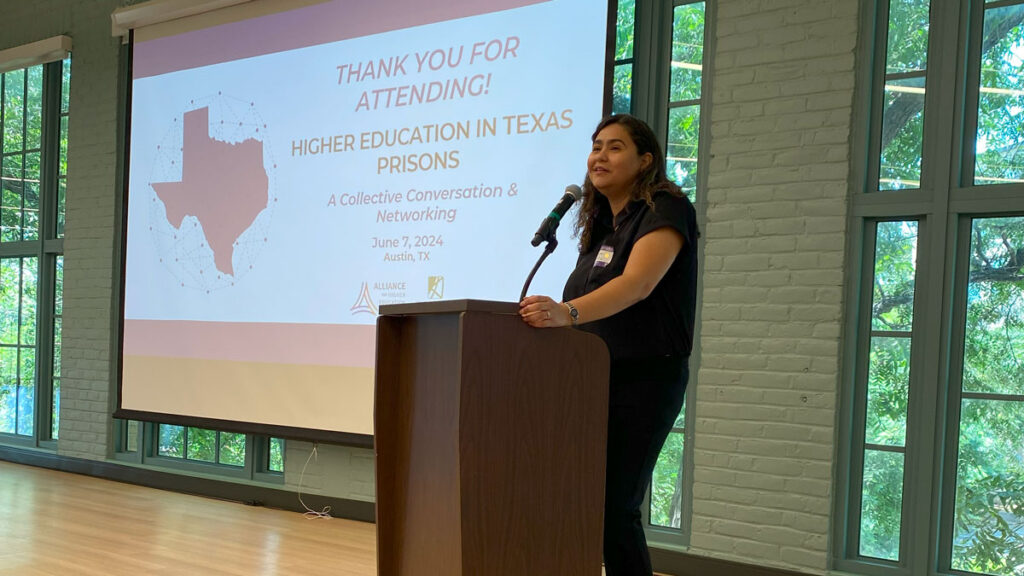
 As a policy analyst with EdTrust in Texas, Alexa worked with a small group of partners, including Texas Appleseed, a nonprofit organization dedicated to fostering safe and supportive school environments and dismantling the school-to-prison pipeline. Together, they aimed to shape and advance
As a policy analyst with EdTrust in Texas, Alexa worked with a small group of partners, including Texas Appleseed, a nonprofit organization dedicated to fostering safe and supportive school environments and dismantling the school-to-prison pipeline. Together, they aimed to shape and advance 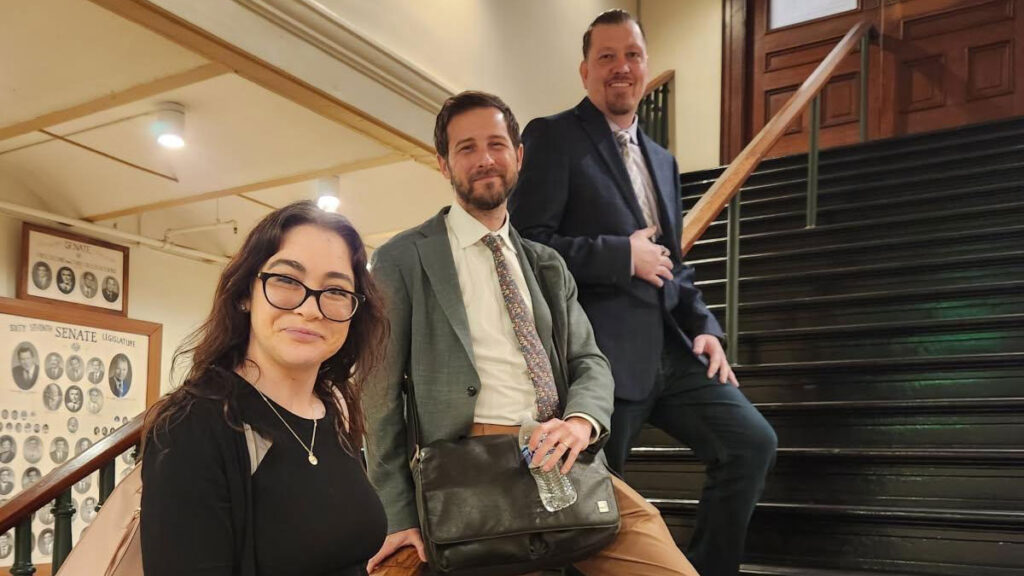 In the interim between the 88th and 89th legislative sessions, EdTrust continued to meet with committee staffers, present at state-level convenings, and engage in the Texas Sunset Advisory Commission’s review of the Texas Department of Criminal Justice (TDCJ) and Windham School District (WSD). Sunset is a unique process in which state agencies undergo review and legislative reauthorization on a periodic cycle. It involves careful study by independent staff, public hearings, and ultimately results in a must-pass bill that shapes the agency’s future. Alexa’s input and research (cited in
In the interim between the 88th and 89th legislative sessions, EdTrust continued to meet with committee staffers, present at state-level convenings, and engage in the Texas Sunset Advisory Commission’s review of the Texas Department of Criminal Justice (TDCJ) and Windham School District (WSD). Sunset is a unique process in which state agencies undergo review and legislative reauthorization on a periodic cycle. It involves careful study by independent staff, public hearings, and ultimately results in a must-pass bill that shapes the agency’s future. Alexa’s input and research (cited in 